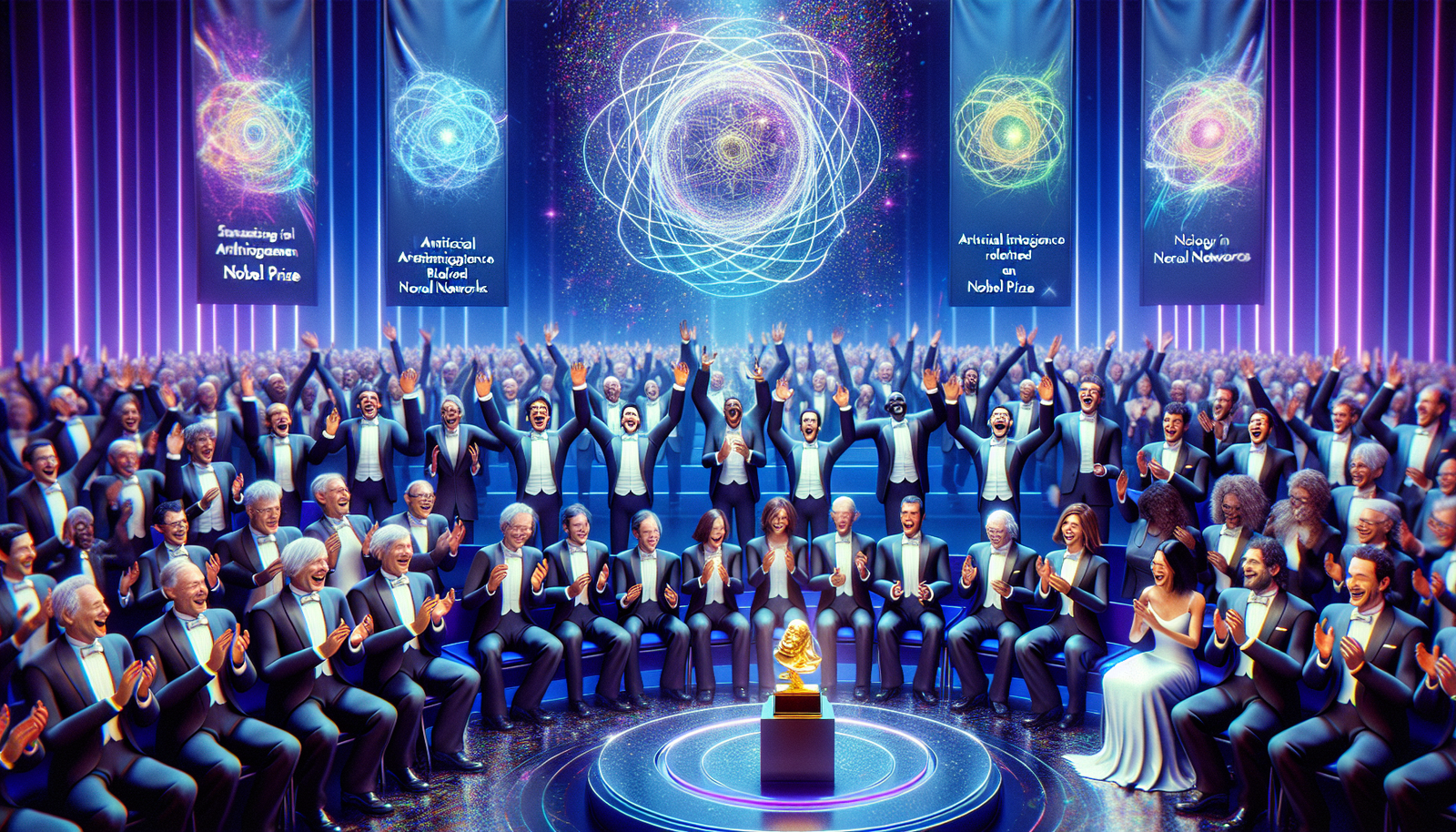The 2024 Nobel Prize in Physics emerges as a historic distinction, crowning innovative minds. John Hopfield and Geoffrey Hinton, emblematic figures in artificial intelligence, have merged principles of statistical physics with learning concepts. Their work is revolutionizing artificial neural networks, leading to significant advancements in many scientific fields. The impact of this recognition extends far beyond research, promising innovative and interdisciplinary applications.
The 2024 Nobel Prize in Physics: A Unique Distinction
The Nobel Prize in Physics was awarded in 2024 to John Hopfield and Geoffrey Hinton for their groundbreaking work on artificial neural networks. These researchers played a pioneering role in the development of artificial intelligence models, taking advantage of principles from statistical physics.
The Impact of Neural Networks in Research
The laureates demonstrated how these networks have enabled significant advancements in various scientific fields, notably particle physics. Thanks to their work, the complexity of data can now be analyzed with unmatched precision, facilitating major discoveries.
Fundamental Concepts Applied to Artificial Intelligence
The work of Hopfield and Hinton is based on key concepts from physics, such as magnets and gases. This multidisciplinary approach has allowed the design of artificial neuron models that mimic the functioning of biological systems. Thus, their designs have opened the way for improvements in machine learning capabilities.
Practical Applications and Implications
The applications of neural networks span various fields, from analyzing climate data to combating diseases. The use of these networks has proven crucial for processing complex information, revealing intricate patterns often invisible to the naked eye.
International Recognition of the Laureates
The recognition of John Hopfield and Geoffrey Hinton by the Royal Academy of Sciences underscores the importance of their contributions to artificial intelligence. Their research has laid the groundwork for many of today’s techniques, disrupting traditional paradigms in the sector.
To deepen your understanding of neural networks and machine learning, consult the detailed article accessible here: Understanding Neural Networks and Machine Learning.
Frequently Asked Questions about the 2024 Nobel Prize in Physics and Artificial Neural Networks
What work led to the awarding of the 2024 Nobel Prize in Physics to John Hopfield and Geoffrey Hinton?
The two laureates designed artificial neural networks inspired by fundamental concepts of statistical physics, which allowed for vast advancements in many scientific fields.
What is the importance of artificial neural networks in the development of artificial intelligence?
Artificial neural networks are essential in AI as they enable the learning of complex data, recognizing patterns, and making decisions, thus transforming many sectors, including scientific research.
How are concepts from physics applied in the field of artificial intelligence?
Principles from physics, such as the dynamics of systems and thermodynamics, are used to model and optimize the learning algorithms that underpin artificial neural networks.
What impact does the 2024 Nobel Prize in Physics have on the future of AI research?
This Nobel Prize highlights the growing importance of interactions between physics and computer science, encouraging interdisciplinary research that could foster further innovations in the field of artificial intelligence.
How does the research of Hopfield and Hinton differ from previous approaches to neural networks?
Their approach combines theories from physics with machine learning models, allowing them to improve the efficiency and performance of neural networks compared to previous methods.
What fields have benefited from the advancements brought by these neural networks in scientific research?
Neural networks have been successfully applied in various fields, including particle physics, biology, medicine, and engineering, leading to significant discoveries and innovations.
How do the Nobel Prize-winning laureates influence the teaching of science and technology?
Their work inspires new educational programs that integrate advanced concepts from physics and AI, thus preparing students for future challenges in these rapidly evolving fields.
What role do neural networks play in simulating complex physical phenomena?
Neural networks facilitate the modeling and simulation of complex physical phenomena by enabling in-depth analysis of large amounts of data, which was previously challenging to achieve using classical methods.






